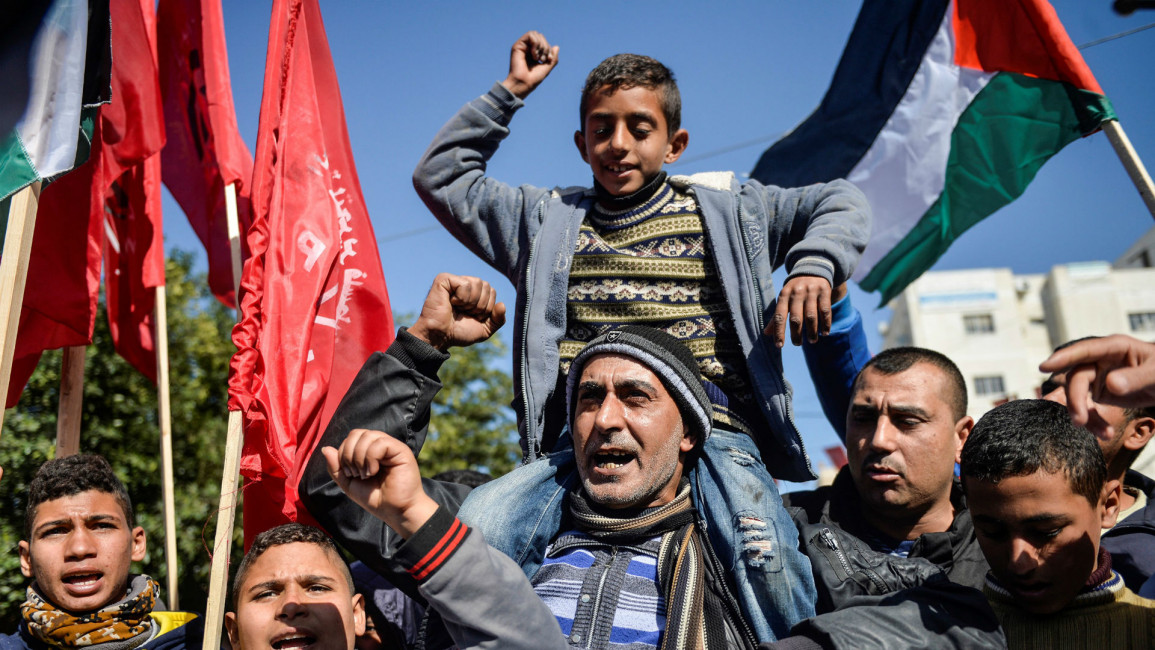
Fuse blown: Gaza living on four hours of power
While people around the world try to reach Mars and work on inventions almost unimaginable that would better people’s lives, the Gaza Strip is still suffering from a power shortage problem affecting every aspect of life. A problem only exacerbated by the freezing weather and the dropping temperatures.
Students struggle to study for their final exams, patients have their health compromised in hospitals and children and elders alive suffering and trying to understand whether this problem is going to fixed or not. Over ten years ago, Israel destroyed a large part of the power plant located in central Gaza after the abduction of the Israeli soldier, Gilad Shalit, by Hamas militants. Since then, the electricity crisis has controlled every aspect of life in Gaza, an ongoing concern.
Local and international organisations have suggested numerous solutions in the past ten years to solve the crisis, leading to the reconstruction of the destroyed power station. Yet the crisis persists, and the three concerned sides, the Palestinian authority, Hamas and the Israeli government continue to trade off blame among each other.
Tensions and anger are rising in the Gaza Strip as power cuts exceed 18 hours a day. Hundreds of angry demonstrators have poured into the streets, protesting against the Gaza electricity company and the government, demanding them to find a solution that everyone in the Strip is suffering from. Protesters have asserted that electricity is a right every human needs and it must be provided for all.
Like hundreds of students in Gaza, Abdullah, a university student, explains how he can’t concentrate on studying and preparing for his exams since the power only comes three hours a day. “Sometimes, it is off the whole day”, he adds, saying that he uses chargeable torches to get him through his studies – when he can manage to charge them.
The elderly are also facing issues. Huda Ahmed, who depends on her medical air mattress for her back ache, has spoken about her suffering during the night. “I don’t know why we’re facing these troubles,” Huda says. “We’re humans, and we need power in our daily lives, it’s a right everyone should have!”
Some social media activists have accused the Hamas government in the besieged Strip of arresting protestors in the demonstrations held in Gaza’s suburbs. Comments blaming both Fatah and Hamas of being careless towards their people and criticising their uncompromising stance fill social media.
Politicians meanwhile, insist that the continuous power shortage problem tightens the noose on Gazans, and warn that Gaza is on the verge of explosion against both the government ruling it, and the occupation holding it under siege.
In a strongly worded statement, the Popular Front for the Liberation of Palestine has said that the power crisis is being exacerbated which worsens the sufferings of the Palestinians living in Gaza, while solutions are still "in the drawers of the governors." The statement has also accused the Palestinian political parties of aborting the suggested initiatives that aimed to solve the problem, focusing on themselves and forgetting the citizens.
Tarek Lubad, spokesman for the Gaza electricity company being held responsible, said that the company suffers from shortages of fuel needed for the power plant, and the remaining amount can only run one generator. Lubad added that the crash of Egyptian power cables into Gaza has also aggravated the crisis.
The Palestinian Energy and Natural Resources Authority had its own claims as well, demanding from the responsible sides to open Kerem Shalom border crossing and to provide the power plant with the fuel needed for the second generator. The Palestinian Prime Minister meanwhile, has relieved the minister of the Palestinian Energy, Omer Katana, from his position.
In the midst of the blame game, the people in Gaza are demanding from those responsible to separate the power cut issue from the political battles between the Palestinian parties, urging both Fatah and Hamas to accelerate the reconciliation process and to look after the needs of their people.
Mohammed Arafat holds a bachelor degree in Teaching English as a Foreign Language and is preparing for a Masters in Peace and Conflict Studies. Author of Still Living There, a book documenting Gaza's last war and its aftermath. You can read more of his poetry on his blog here.




